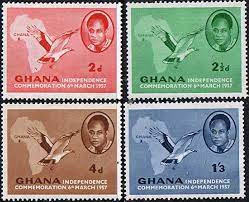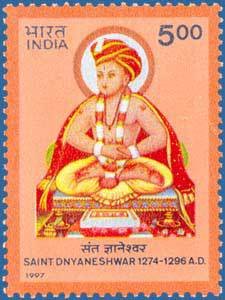

Paramahansa Yogananda (born Mukunda Lal Ghosh; January 5, 1893 – March 7, 1952) was an Indian Hindu monk, yogi and guru who introduced millions to the teachings of meditation and Kriya Yoga through his organization Self-Realization Fellowship (SRF) / Yogoda Satsanga Society (YSS) of India, and who lived his last 32 years in America. A chief disciple of the Bengali yoga guru Swami Sri Yukteswar Giri, he was sent by his lineage to spread the teachings of yoga to the West, to prove the unity between Eastern and Western religions and to preach a balance between Western material growth and Indian spirituality.[3] His long-standing influence in the American yoga movement, and especially the yoga culture of Los Angeles, led him to be considered by yoga experts as the "Father of Yoga in the West.
India released a commemorative stamp in honor of Yogananda in 1977."Department of Post issued a commemorative postage stamp on the occasion of the twenty‑fifth anniversary of Yogananda's passing in honor of his far‑reaching contributions to the spiritual upliftment of humanity. "The ideal of love for God and service to humanity found full expression in the life of Paramahansa Yogananda. Though the major part of his life was spent outside India, still he takes his place among our great saints. His work continues to grow and shine ever more brightly, drawing people everywhere on the path of the pilgrimage of the Spirit.
On March 7, 2017, the Prime Minister of India, Narendra Modi, released another commemorative postage stamp honoring the 100th anniversary of the Yogoda Satsanga Society of India.[90] Prime Minister Modi at Vigyan Bhawan in New Delhi appreciated Yogananda for spreading the message of India's spirituality in foreign shores. He said that though Yogananda left the shores of India to spread his message, he always remained connected with India










